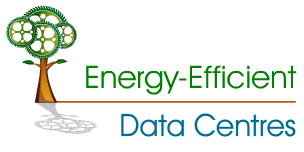Workshops
ACM e-Energy 2018 will have an exciting spread of four workshops. We invite everyone to consider submitting a paper and/or attending a workshop! The workshops, dates, and workshop chairs are listed below. The calls for workshop papers, deadlines, detailed descriptions, and links to the workshop websites will be added soon.
E2DC
7th International Workshop on Energy-Efficient Data Centres (E2DC) – Full day – FZI Main Building – Room Tokyo

The main goal of the E2DC 2018 workshop is to study innovative methods to improve efficiency and sustainability of data centres - important and ever growing source of energy consumption. E2DC concentrates on a broader context of data centre ecosystem by investigation of interactions with other data centres, smart cities and smart grids. Hence, the workshop discusses topics such as the use of renewable energy, optimisation of cooling and heat re-use, demand response techniques, federation of distributed data centres and many more. This year, in addition to these general workshop topics, we would like to discuss the future trends of data centre development, especially their architectures and location. We would like to discuss whether a majority of data centres will be concentrated in large colocation data centres and public clouds or if (and how) smaller systems can be integrated with existing infrastructure (e.g. buildings, homes, wind power plants, etc.).
Paper submission deadline:
Notification of acceptance:
Camera-ready deadline:
Workshop website: http://e2dc.eu
Ariel Oleksiak, Poznan Supercomputing and Networking Center, Poland
Gunnar Schomaker, Software Innovation Campus Paderborn, Germany
Björn Postema, University of Twente, Netherlands
Session 1 Papers:
Mapping Data Centre Business Types with Power Management Strategies to Identify Demand Response Candidates, Sonja Klingert (University of Mannheim)
Demand-Response Power Management Strategy Using Time Shifting Capabilities, Christian Tipantuña, Xavier Hesselbach (Universitat Politècnica de Catalunya)
Fitting Realistic Data Centre Workloads: A Data Science Approach, Björn F. Postema, Niels J. Geuze, Boudewijn R. Haverkort (University of Twente)
Minimising energy costs of data centers using high density heterogeneous systems and intelligent resource management, Ariel Oleksiak, Tomasz Ciesielczyk, Michal Kierzynka, Wojciech Piatek (Poznan Supercomputing and Networking Center)
Modelling and Analysing Conservative Governor of DVFS-enabled Processors, Robert Basmadjian, Hermann de Meer (University of Passau)
Session 2 Papers:
A demonstration of monitoring and measuring data centers for energy efficiency using opensource tools, Jonas Gustafsson, Sebastian Fredriksson, Magnus Nilsson-Maki, Daniel Olsson, Henrik Niska (Lition AB), Nicolas Seyvet (OP5), Tor Bjorn Minde, Jeffrey Sarkinen, Jon Summers (RISE SICS North)
SeDuCe: Toward a testbed for research on thermal and power management in datacenters, Jonathan Pastor, Jean Marc Menaud (IMT Atlantique)
EV-Sys
3rd Workshop on Electric Vehicle Systems, Data, and Applications (EV-Sys) – Full day – FZI Main Building – Room New York
EV-Sys will be a full-day workshop, examining the latest development of areas that are expected to play a major role towards enhancing EV performance. Hence the main focus of the workshop will be based on methodological concepts through the improvement of the battery management system (BMS), the extensive use of information and communication technologies (ICT) to increase energy efficiency and thus the range of the vehicle, the revision of the electric and electronic architecture to reduce complexity and the number of components and interconnections, whilst improving energy efficiency, functionality and modularity and the development of tools and networks to enable the interoperable charging and services provision to owners of EVs. By sharing and exchanging the practical knowledge of electric vehicles, we hope to bolster further synergy and collaborations for a wide range of electric vehicle research in practice.
Paper submission deadline:
Notification of acceptance:
Camera-ready deadline:
Workshop website: https://evsys2018.iccs.gr/index.php
Robert Basmadjian, University of Passau, Germany
Angelos Amditis, Institute of Communication and Computer Systems, Greece
Session Papers:
Experimental performances assessment of a dynamic wireless power transfer system for future EV in real driving conditions, Stéphane Laporte, Gérard Coquery, Marc Revilloud (VEDECOME, France), Virginie Deniau (IFSTTAR, France)
Dynamic EV Battery Health Recommendations, Markus Eider, Andreas Berl (Deggendorf Institute of Technology)
Flexibility Reward Scheme for Grid-Friendly Electric Vehicle Charging in the Distribution Power Grid, Philipp Danner, Wolfgang Duschl (Bayernwerk AG), Dominik Danner, Ammar Alyousef, Hermann de Meer (University of Passau)
Approximation Scheduling Algorithms for Electric Vehicle Charging with Discrete Charging Options, Majid Khonji, Sid Chi-Kin Chau, Khaled Elbassioni (Masdar Institute, Khalifa University)
Coordinating E-Mobility Charging for Frequency Containment Reserve Power Provision, Jonas Schlund, Ronny Steinert, Marco Pruckner (Friedrich-Alexander-University Erlangen-Nürnberg)
EME
1st International Workshop on Energy Market Engineering – Full day – FZI HoLL Building – Room Hollywood
The energy landscape is undergoing several fundamental changes. Decentralized and intermittent generation from renewable energy carriers is replacing the controllable fossil fuel energy sources. Furthermore, micro-grids advocate a semi-distributed infrastructure as opposed to the conventional centralized energy systems. Finally, increasing the number of electric vehicles, and the replacement of passive consumers with active prosumers requires new energy trading platforms.
These trends create major challenges to electricity markets. Introducing new ways of providing flexibility, emergence of new concepts such as vehicle to the grid, redefining energy/power unit commitments, and creating local electricity markets. These are some examples of how new market designs can accommodate these changes efficiently.
Paper submission deadline:
Notification of acceptance:
Camera-ready deadline:
Workshop website: http://im.iism.kit.edu/EME.php
Yashar Ghiassi-Farrokhfal, Erasmus University, The Netherlands
Wolfgang Ketter, University of Cologne, Germany
Christof Weinhardt, Karlsruhe Institute of Technology, Germany
Johannes Gärttner, Karlsruhe Institute of Technology, Germany
Philipp Staudt, Karlsruhe Institute of Technology, Germany
Session Papers:
A Generalized Nash Equilibrium Analysis of Electric Power Transmission-Distribution Coordination, Ilyès Mezghani, Anthony Papavasiliou (CORE, UCLouvain), Hélène Le Cadre (EnergyVille Research Center)
Bidding Strategies for Flexible and Inflexible Generation in a Power Market Simulation Model, Anke Weidlich (University of Freiburg, INATECH), Thomas Künzel, Florian Klumpp (Fichtner GmbH & Co. KG)
Clustering Household Preferences in Local Electricity Markets, Esther Mengelkamp, Christof Weinhardt (Karlsruhe Institute of Technology)
Engineering Smart Market Platforms for Market Based Congestion Management, Julian Huber (Forschungszentrum Informatik), Simon Köppl (Forschungsstelle für Energiewirtschaft e.V.), Melanie Schutz (TenneT TSO GmbH), Nikolai Klempp (University of Stuttgart), Erik Heilman (University of Kassel)
Effect of Real-Time Electricity Pricing on Ancillary Service Requirements, Md Umar Hashmi, Ana Busic (INRIA and ENS Paris), Deepan Muthirayan (Cornell University)
EDA
1st International Workshop on Energy Data and Analytics – Full day – FZI HoLL Building – Event Hall
EDA aims at bringing together experts on data management and analytics on the one hand and as well as those on energy systems on the other hand, be they from academia, be they from industry, be they from related organizations or from administration. The design of future energy systems that are efficient, ecologically friendly, robust and scalable is a core concern of our societies. Further, in recent years there has been a major shift towards a data-oriented perspective on system design. In the context of energy systems, a broad variety of data, often huge in volume, is available. For instance, each smart meter generates data streams, which are often recorded and archived. Or think of simulations of energy systems where the simulation outcomes cannot be analyzed by hand any more. The questions on how such data can be captured and processed, and what can be learned from it are fundamentally important. This includes predictions of various kinds of supply and demand, predictive maintenance of energy infrastructures, the processing of energy-consumption data in a way that respects the privacy of the individuals involved as well as business secrets.
Paper registration and submission deadline:
Notification of acceptance:
Camera-ready deadline:
Workshop website: http://www.energystatusdata.kit.edu/345.php
Workshop submission website: https://eenergy18eda.hotcrp.com/
Klemens Böhm, Karlsruhe Institute of Technology, Germany
Manish Marwah, Micro Focus, USA
Session Papers:
SCiBER: A new public data set of municipal building consumption, Philipp Staudt, Nicole Ludwig, Julian Huber, Veit Hagenmeyer, Christof Weinhardt (Karlsruhe Institute of Technology)
HIPE: An Energy-Status-Data Set from Industrial Production, Simon Bischof, Holger Trittenbach, Michael Vollmer, Dominik Werle, Thomas Blank, Klemens Böhm (Karlsruhe Institute of Technology)
Numerical Weather Prediction Data Free Solar Power Forecasting with Neural Networks, Vinayak Sharma, Umit Cali (University of North Carolina at Charlotte), Veit Hagenmeyer, Ralf Mikut, Jorge Ángel González Ordiano (Karlsruhe Institute of Technology)
Hybrid Day-ahead Load Forecasting with Atypical Residue based Gaussian Process Regression, Junho Song, Euiseok Hwang (Gwangju Institute of Science and Technology)
Optimal Reconfiguration of Real Low-Voltage Grids Based on Probabilistic Simulation, Michael Schallenburger, Leschek Kopczynski, Philipp Huppertz, Roland Zeise (Hochschule Düsseldorf)
Energy Disaggregation for SMEs using Recurrence Quantification Analysis, Laura Hattam, Danica Vukadinovic Greetham (University of Reading)
Data Economy for Prosumers in a Smart Grid Ecosystem, Ricardo Bessa, David Rua, Cláudia Abreu, Paulo Machado, José Ricardo Andrade, Rui Pinto (INESC TEC), Carla Gonçalves (INESC TEC and FCUP), Cláudia Abreu, Marisa Reis (INESC TEC and FEUP)
Supporters



Sponsors





